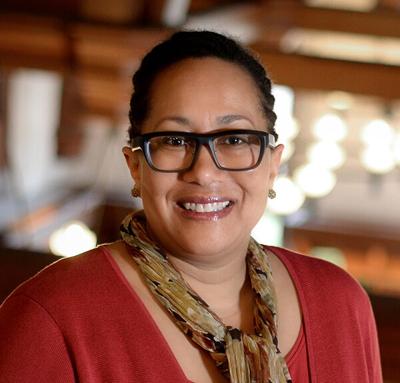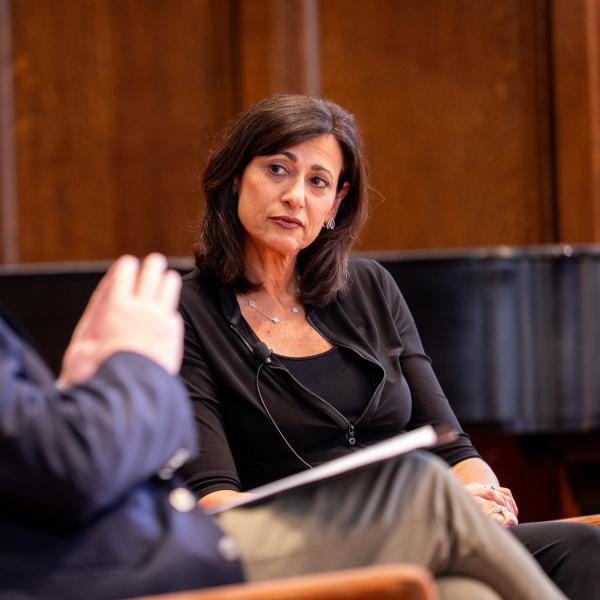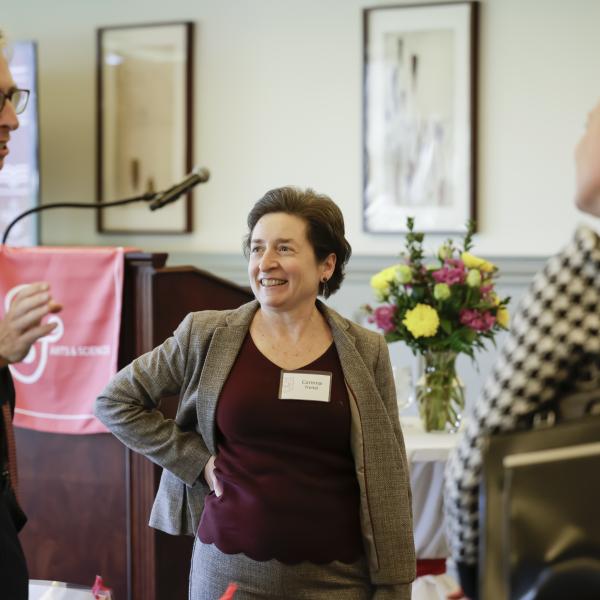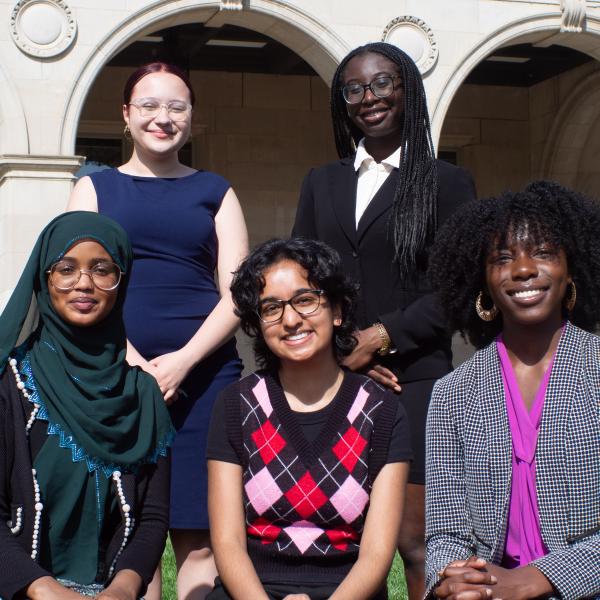Adrienne Davis, the William M. Van Cleve Professor of Law and director of the Center for the Study of Race, Ethnicity & Equity (CRE2), will step down May 31 from her position as vice provost for faculty affairs and diversity.
Having spent a decade in this position, with notable success in increasing diversity among the university faculty and administration, designing mentorship and leadership development programs, and implementing LGBTQ and gender-equity initiatives, Davis is ready to shift her focus to research and supporting CRE2 and to allow others to further the progress she has made.

“My initial commitment was to do this for two years, and I stayed on for eight more years than I had planned,” Davis noted fondly. “It’s been incredibly rewarding, and I have been fortunate to be able to work with the school deans, and two chancellors and four provosts. But I really feel like I’ve pushed things as far as I can push them — which has been really exciting to see and do — and I am ready to tackle some things that I’ve had on the back burner that are more research and academic focused. I also think that it’s time for the university to get some fresh eyes and fresh vision on the things that I’ve been working on.”
CRE2 launched in August 2020, and as its inaugural director, Davis hit the ground running with initiatives and networks for race and ethnicity research. The Center will soon announce its first cohort of faculty fellows and is looking forward to onboarding its first cohort of graduate fellows this fall. “That has been phenomenal,” Davis said. “I think what I’m most excited about right now is that we have so many colleagues who are working on race and ethnicity in our scholarly community. Some of them are long-standing scholars of race and ethnicity, and their research is mature. We’re trying to support them with grants and fellowships and however else we can. With other colleagues, it’s more exploratory, asking how can their research and scholarship take up this set of important issues right now? We have tried to design more entry-level resources for them. So it’s really exciting to see people at both ends of the spectrum thinking about this crucial set of research questions.”
Support for this research includes recently awarded Colors of COVID grants to support scholars investigating racial disparities that surfaced through the pandemic and “how the geography of Covid, if you will, ends up shaping people’s lives, contagion, and everything else.” Another initiative is to support research on race and ethnicity in Latin American and Latinx studies, especially the latter for which WashU currently does not have a program. CRE2 convened a Latinx and Latin American Race & Ethnicity Research Advisory Group that included colleagues from Arts & Sciences and around the university to consider how the Center might support research in these areas. “They just came back with their report and we are now implementing their recommendations, including inviting speakers, convening research groups, and sponsoring labs and look forward to strong outputs with grants and knowledge production around these areas.”
CRE2's programs coincide with university-wide efforts to honor Black History Month. “This year we really saw the schools come out strongly with programming,” Davis said. “They’re thinking seriously and innovatively about how racial justice and racial equity are the core of each school’s mission.” The university’s diversity website showcases the variety of programs occurring. Davis added, “if you look at the events you’ll see the incredible range of work that our intellectual and learning communities pursue. There’s an event on the classical composer, Schubert; one on freedom suits brought by enslaved African Americans; one on Black boys’ mental health; and the Chancellor is interviewing Trustee David Steward with our senior colleague Gerald Early leading a discussion afterwards. And, of course, the Department of African and African-American Studies did compelling program throughout the month. When you look at the calendar it reinforces the range of ways that Black studies touches on so many different disciplines and areas of life.”
Davis’ own research echoes the university’s efforts. She holds courtesy appointments in several departments in Arts & Sciences — African and African-American studies; history; sociology; and women, gender and sexuality studies — and she has just accepted an appointment in the Olin School of Business as a professor of organizational behavior and leadership. One of the two books she is now writing stems from her years of success in helping to increase faculty diversity at Washington University. In this work, Davis will consider why achieving diversity in higher education is some of the most challenging diversity work there is. Davis summarized, “I’m interested in pursuing a lot of the on-the-ground work I’ve been doing as a series of research questions.”
For Davis, shifting away from her administrative leadership and having the time to contribute to the body of knowledge in these fields promises to be rewarding. “I’ve been teaching for 30 years,” Davis shared, “so I took this decade to go do this other thing, administration, which was really great, but I have to say that the best job in the world is the teaching and the writing and the scholarship. I’m really excited to get back to what drew me into this life and spend the next 20 years doing that.”



